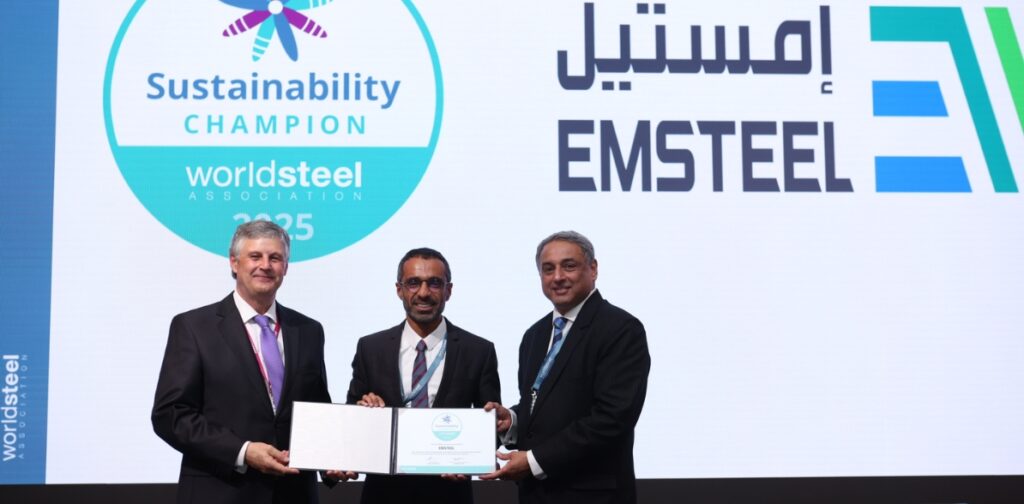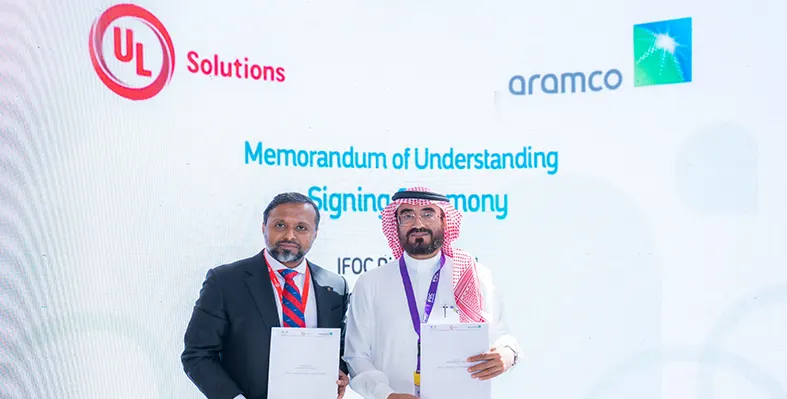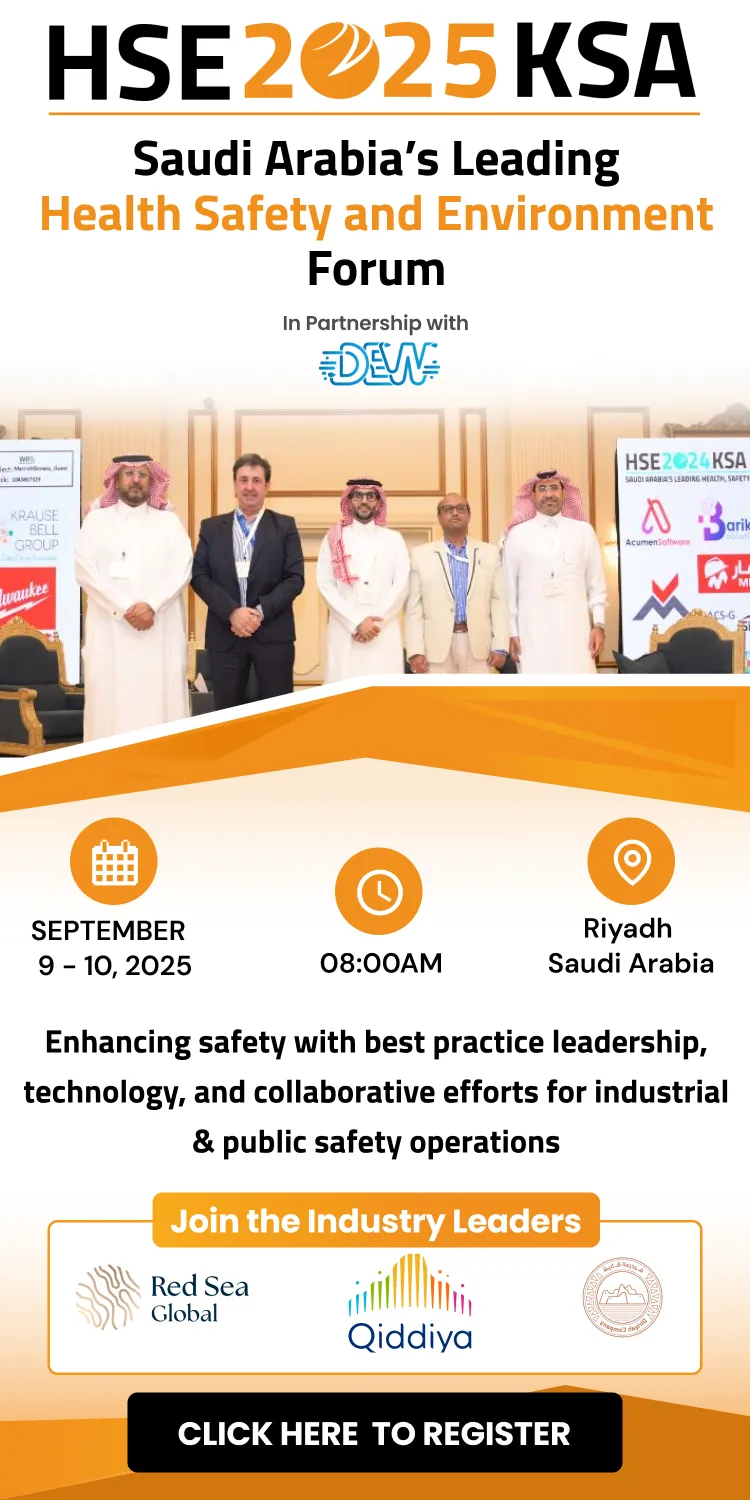
The recognition is a direct result of the significant progress EMSTEEL made throughout 2024 in enhancing sustainability.
Abu Dhabi-headquartered EMSTEEL, one of the largest publicly traded steel and building materials manufacturers in the region, has been recognised as a 2025 Steel Sustainability Champion by the World Steel Association (worldsteel) for the second consecutive year
The recognition was presented during the worldsteel Special General Meeting held in Sydney, Australia. Now in its eighth year, the Steel Sustainability Champion accolade—part of The Steelie Awards—honours companies demonstrating exceptional commitment to sustainable development in the global steel industry. They have to fulfil stringent criteria, including signing the worldsteel Sustainability Charter, meeting 20 sustainability criteria, providing Life Cycle Inventory (LCI) data, and participating in worldsteel’s initiatives such as the Steelie Awards or the Safety and Health Recognition Programme.
The recognition is a direct result of the significant progress EMSTEEL made throughout 2024 in enhancing sustainability. For example, the company has partnered with Masdar to launch the MENA region’s first green hydrogen demonstration project for the steel industry, positioning EMSTEEL as a leader in the UAE’s hydrogen economy and a driving force for providing sustainable solutions for the construction and manufacturing sectors.
EMSTEEL is also active on the global stage. As a co-chair of the Alliance for Industry Decarbonisation, an initiative led by the International Renewable Energy Agency, EMSTEEL is working alongside 84 partners to set joint decarbonisation targets, including tripling renewable energy production and reducing greenhouse gas emissions by 54% by 2030.
As part of its ambitious decarbonisation roadmap, EMSTEEL aims to reduce its greenhouse gas emissions by 40% in its Steel Business Unit and 30% in its Cement Business by 2030, with the ultimate goal of achieving net-zero emissions by 2050. The company has already made substantial progress, having reduced its Scope 1 and Scope 2 emissions intensity by 23%.
Engineer Saeed Ghumran Al Remeithi, Group CEO of EMSTEEL, said, “Being named a worldsteel Sustainability Champion is a true honour and a reflection of the dedication and hard work of everyone at EMSTEEL. It reinforces our commitment to driving the transition towards a low-carbon future, not just for the steel industry, but for the entire global industrial landscape. With a continued focus on innovation, efficiency, and environmental stewardship, we will build a cleaner, more sustainable tomorrow.
“As the first steelmaker in the world to capture part of its CO₂ emissions, we have been able to operate with 45% less carbon intensity than the global average and are excited to continue playing a cataclysmic role in decarbonising this hard-to-abate sector and the downstream supply chain.”









